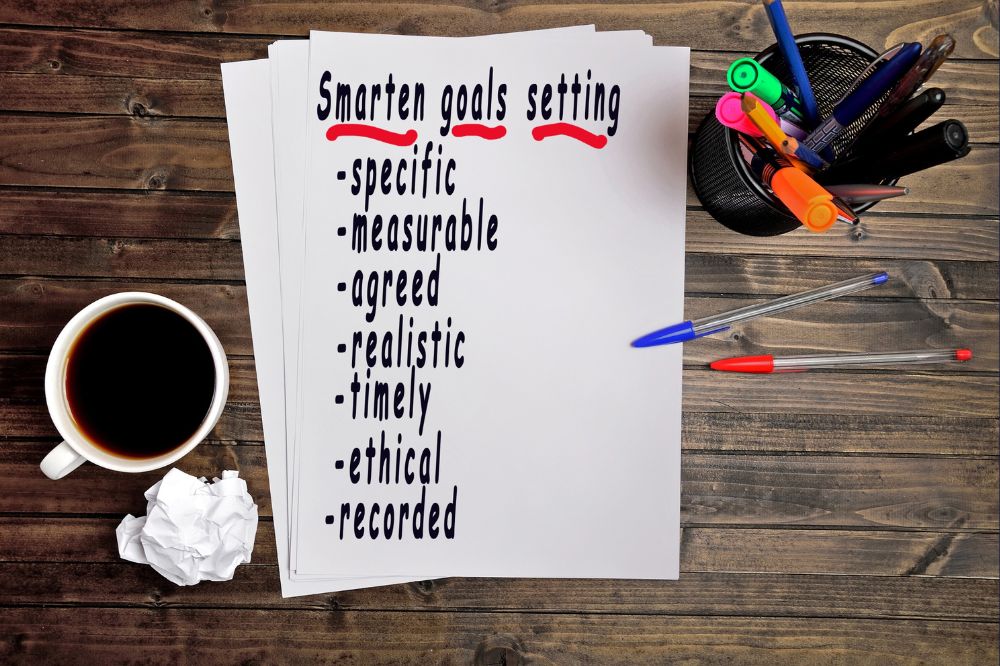If you’re going to start any kind of truck-driving business, then your first step is to create a comprehensive business plan for trucking.
A good business plan is essential for the success of your business. Without one, you won’t have a clear direction, and you’ll probably run into problems that you never expected. With a proper business plan, you’ll be fully prepared for a profitable venture.
Ready to create your trucking business plan? We’ll show you how and answer your trucking business plan FAQs in this actionable guide.
What is a Trucking Business Plan?
A trucking business plan is a document that outlines all the aspects of starting and running a trucking company. It’s an essential blueprint you need to create when starting your business, to help you understand how you’ll get your business off the ground and how your trucking services will work.
Your trucking business plan should include detailed information about your company’s goals, target market, services, financial projections, marketing strategies, and operational plans. We’ll get into more detail in the sections below.
Essentially, it’s a roadmap that guides you on how to establish and grow your trucking business strategically.
Why Do You Need a Trucking Business Plan?
You need a trucking business plan because it acts as an actionable guide for your company’s success.
Around 70% of businesses that survive for five years follow a strategic business plan. And, entrepreneurs who have a business plan in place are 260% more likely to launch their own trucking business.
So, a proper business plan will make it a lot easier to start, manage, and grow a successful business in the trucking industry.

Your business plan helps you clarify your goals, understand your target market, and plan your finances effectively. With a solid plan in place, you can identify potential challenges that your trucking company might face, and develop strategies to overcome them. You’ll also have a clear idea of how you can implement a marketing and sales strategy, and get customers from day one.
Plus, having a well-thought-out business plan makes it easier to secure funding from investors or lenders.
Overall, your business plan provides direction, focus, and a roadmap for building and growing your trucking business.
What to Know Before Creating Your Trucking Business Plan
Before you build your trucking company business plan, you’ll need to have a good understanding of the industry and what’s required to run a successful trucking company. This will ensure your business plan is realistic and includes all the right information.
Make sure that you have a solid understanding of the legal requirements and regulations of the trucking industry. This includes things like obtaining the right permits, licenses, and commercial insurance coverage needed to operate trucking companies.
It’s also important to have both business knowledge and industry knowledge. The more research you do before writing your trucking business plan, the more strategic and realistic your business plan will be for establishing a successful business.
Conduct thorough research to understand the competitive landscape, market trends, and customer needs. Knowing your competition and target market will help you position your trucking business more strategically and identify unique selling points.
You’ll also need to understand the costs associated with purchasing or leasing trucks, maintaining them, fuel expenses, and overhead costs. Having a clear understanding of your financials will enable you to set realistic goals and develop a more sustainable business model.
Consider chatting with other industry professionals who can provide valuable insights and guidance as you develop your trucking business plan.
Ultimately, by doing more research into the industry, you’ll be able to develop a more comprehensive business plan that’s more useful when starting a business.

What to Include in a Trucking Company Business Plan
When setting up a business plan for your own trucking company, you’ll want the plan to be as detailed as possible – covering everything you’ll need to know about how to set up and grow your business.
Here’s a basic overview of the main sections your business plan should cover:
- Company description: Explain what your company is about and what makes it special. Describe who manages the company (in an executive summary) and why they’re qualified.
- Operational plan: Explain how your company will operate and what exactly you will do. Lay out specific, achievable goals to help your company grow.
- Services: Describe what your company offers to customers, including any special services that might give you a competitive advantage.
- Target market: Identify the customers you want to reach or the areas you want to serve. Explaining your target customers is a key part of any business plan.
- Market analysis: Look at what’s happening in the trucking industry. Understand what customers want and where they’re located. A thorough competitive analysis is essential.
- Sales and marketing strategies: Explain how you plan to attract customers and sell your services.
- Financial projections: Show how much money you expect to make and spend.
- Funding: Figure out how you’ll get the money you need to start and run your business.
In the section below, we’ll go into more detail about how to write these sections and what information they need to include.
How to Write a Trucking Business Plan
Ready to plan your trucking company? Then follow this business plan template to make sure you cover all your bases before setting up your business.

Picking a Name
The first step in planning out your business is deciding on a name for it.
Choose a name that reflects your trucking business’s identity and values. Make sure it’s memorable, easy to spell, and relevant to your specific niche in the trucking industry.
Company Description
Describe your trucking business, including its mission, vision, and core values. Highlight what sets your company apart from competitors and how you plan to deliver exceptional service to your customers.
This can be a brief description – you’ll go into more detail about each area later on in the business plan.
Management and Personnel
Outline the management structure of your trucking company, including key team members and their roles. If you’re starting an owner-operator venture, then this could just be you.
Emphasize the experience and qualifications of your team members (or just your experience) to instill confidence in potential investors and partners.
Operational Plan (Using SMART Goals)
An essential part of creating a business plan is outlining your operations. Detail how your business will operate on a day-to-day basis.
Try to be as comprehensive as possible here, outlining things like where your truck will park, how it will get serviced, who will drive it, who will manage client liaisons, and so on.
An important part of establishing an operational plan is also setting goals for it. Set Specific, Measurable, Achievable, Relevant, and Time-bound goals for your trucking business.
This could include increasing the number of clients by a certain percentage within six months or reducing delivery times by implementing new technology within a year. These goals will help keep your business on an upward path.
Services
Detail the range of services your trucking company offers, such as long-haul transportation, freight forwarding, or specialized logistics solutions.
Highlight any unique features or advantages your services provide to customers.
Selecting a Target Market
Identify the specific industries or geographical areas you plan to target with your trucking services. Consider factors such as demand, competition, and potential for growth when selecting your target market.
Of course, your target market will need to align with the trucking services your business offers.

Market Analysis
A major part of any trucking business plan involves in-depth market analysis. The more this section covers, the better.
Conduct a comprehensive analysis of the trucking industry to identify key trends, such as the increasing demand for last-mile delivery services and the adoption of sustainable transportation practices.
Understand the demands of buyers, including their preferences for on-time delivery, cost-effectiveness, and transparency in tracking shipments. Consider geographical considerations such as population density, infrastructure, and regulatory requirements in different regions to tailor your services to them.
Develop sales and marketing strategies based on your market analysis, focusing on building strong relationships with potential clients, leveraging digital platforms for outreach, and showcasing your company’s reliability and efficiency in meeting customer needs.
Financial Projections
Prepare detailed financial projections for your trucking business, including revenue forecasts, expenses, and projected profits.
Use historical data, market research, and industry benchmarks to make realistic projections for the future.
Funding
Explore various funding options for your trucking business, such as grants, self-funding, or crowdfunding.
Determine the amount of capital you need to start and operate your business successfully and create a plan to secure funding from investors or lenders.
Final Thoughts
No matter how experienced you are in the trucking industry, you’ll struggle to get a successful business off the ground without a clear plan. The more detailed and well-researched your trucking business plan is, the greater your business’s chances of success will be.
As mentioned above, a key part of any business plan is funding and financing. Speak to us at Mission Financial to see how we can help you get easy financing for your semi-truck.



